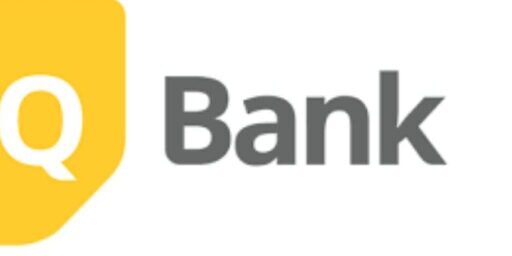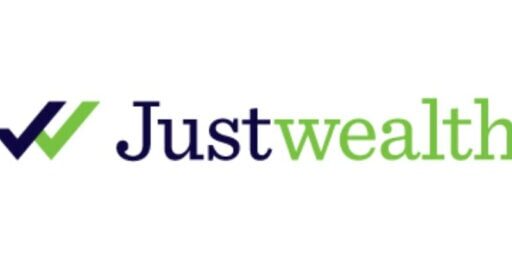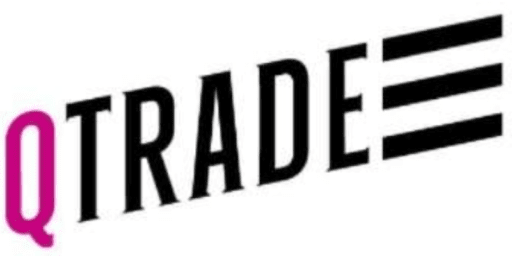Net Worth Update March 2015 – Karl the Real Estate Agent (+14.31% q/q)
Welcome to the Million Dollar Journey March 2015 Net Worth Update – Team MDJ edition. A select group of readers were selected to be part of Team MDJ which was conceived after the million dollar net worth milestone was achieved in June 2014. Karl the Real Estate Agent was selected as a team member and will post net worth updates on a quarterly basis. Here is more about Karl.
Profile:
- Name: Karl
- Age: 33
- Day Job: Employed as a Real Estate Agent Full Time
- Family Income: $130,000 (Personal full-time job); $15,600 (rental income before expenses); and, $50,000 (spouse full time job)
- Goals: Mortgage paid off by 36, million dollar net worth by 40
- Notes: Almost all of net worth is in the real estate market (principal residence and rentals). Current debts are $13,000 owing on a 2009 Audi a4, line of credit used to float business expenses. ($10,000)
The last few months have been great for us. My wife and I have really got on the same page which I feel is going to be invaluable in helping me reach my goals.
I’ve been struggling with which approach I’m going to take and I have decided right or wrong for me the biggest motivator right now if paying off my principle mortgage. I know this will rub a lot of people the wrong way as its the never ending argument which is best – debt reduction vs investing.
My focus going forward will be to sell my real estate holdings except the one rental my wife and I hold personally and throw everything at the mortgage on our home. It’s our goal to be mortgage free. This means that we will need to make the sacrifices as a household to reach my goal of being mortgage free by 36.
Notable Changes Since Last Update
- Purchased building lot and sold it. It should be closing in the coming months.
- In the process of selling rental property.
- My wife is onboard with paying down the mortgage on our house as aggressively as possible (huge motivator for her).
- Made my first frugal move and cancelled cable and bought an android TV box. We will save $120/month which will help fund my wifes TFSA.
On to the net worth numbers:
Assets: $906,078 (14.86%)
- Cash: $5,536 (vs. $1,500) (+369%)
- Registered/Retirement Investment Accounts (RRSP):$6,488 (vs. $6,896) (-5.92%)
- Tax Free Savings Accounts (TFSA): $13,052 (vs. $10,849) (+20.31%)
- Rental Property 1: $230,000 (purchased in 2009 for $167,000 price adjusted for average selling price annually) (+0.00%)
- Rental Property 2: $66,000 ($200,000, 1/3 ownership purchased in 2011 for $160,000 price adjusted for average selling price annually) (+0.00%)
- Development Land: $110,000 ($220,000, 1/2 ownership purchased in 2015 for $100,000 price adjusted for average selling price annually) (+0.00%)
- Principal Residence: $475,000 (purchased in 2012 for $350,000 price adjusted for average selling price annually) (+0.00% )
Liabilities: $472,702 (+15.37%)
- Principal Residence Mortgage: $247,165.99 (vs. $249,493) (-1%)
- Rental Property 1 Mortgage: $135,000 (vs. $107,125) (+26%)
- Rental Property 2 Mortgage: $35,778 (vs. $36,119) (total of $107,334.86 but 1/3 ownership)
- Rental Property Line Of Credit: $50,000 (vs. $0)
- Mastercard: $4,759 (vs. $0)
Total Net Worth: ~$433,376 (vs. $379,111) (+14.31%)
- Started Jan 2014 with Net Worth: $249,924
Some quick notes and explanations to common questions:
The Cash
Any cash I have in my chequing account is currently used to pay monthly bills and living expenses. I deposit all my earnings directly to my Manulife One account. Manulife One Account has been cancelled. All paycheques are deposited into our chequing account and is our primary household account that everything runs through so the cash amount fluctuates.
Savings
My savings are held in a Tax Free Savings Account (TFSA) with BMO. I’m currently maxing out my TFSA and hope to do the same with my wife’s account by the end of the first quarter of 2015.
Where Do the Savings Come From?
I’m not a great budgeter or saver yet, so the bulk of my savings are in debt reduction to cover investments I have already purchased. (Typically land and investment properties) I find that working from behind is the best motivator for me.
Real Estate
My real estate holdings consist of my primary residence, 2 rentals and now one piece of development land. One owned personally and one held in a corporation with 2 other family members and one held in a partnership. I’m currently in the process of securing a building lot to build and sell a spec home on. Building lot has been purchased and resold and should be closed in the coming months, I’m also selling the rental held in the corporation with family members and that should be gone by mid 2015). On my initial post everyone expressed massive concerns about all of my holdings being in real estate and I have listened.









One point I would like to add that I had forgot to mention is I need to access the money I use to pay down my mortgage (via HELOC) to financing the development properties I am working on securing.
Capital is rare. Capital should be put to use to make money. I have a large mortgage on my house (HELOC style), and 1-2 times a year when a portion has been paid down I will access the funds and invest them. If interest rates were high, I would likely not do this.
Right now my mortgage rate is 2.2%, and I am able to get 8% and sometimes 10% with the funds. So for me it makes sense to forgo the guaranteed return of %4.4 by paying down my mortgage, and instead use the funds to generate 8-10% pre-tax returns.
When your marginal tax rate is nearly 50%, that 2% return on having the low-rate morgate paid off is equivalent to a 4% investment return (pre-tax).
Now that 2% is a guarenteed return if you’re fixed rate, and you certainly can’t get 4% return in the market guarenteed.
If you are variable, there is risk that rates will go even lower in the short term but everyone seems to agree rates will rise in the mid-term.
If you pay of your mortgage now, rather than later when interest rates rise to say, 5%, that 4% return becomes a minimum (now), with upside potential to become 10% at when your mortgagte rate would hit 5%.
Another point of consideration is this ROI from paying down debt results in immediate positive impact on free cash flow. You aren’t getting some other asset (like an unrealized capital gain) as the return, you’re getting a constant supply of cash from not paying the interest.
Obviously if you are in a low tax bracket, this effective pre-tax return isn’t nearly as attractive.
You cannot pay off the principle of your mortgage because principles cannot be mortgaged, bought or sold. But you could try to pay off the principal of your mortgage… :-)
The numbers don’t seem to add up on this NWU (but not in the same way as some other updates).
Karl states he wishes to be mortgage-free “by 36, million dollar net worth by 40”; he’s currently 33 and plans to “throw everything at the mortgage”. Let’s look at that.
He’s selling assets worth $66,000 and $110,000, minus mortgages of $35,000 = $140,000 applied to principal mortgage = $105,000 outstanding.
With a gross income of ~$195,000, hopefully the household should be able to pay off the mortgage in 2 years, by the time Karl is 35.
I’ll assume at that time his rental property will be worth $255,000 + $30,000 in savings. His net worth will be ~$300,000.
(notes: i) I boosted his savings & final NW, ii) discounted the rental mortgage assuming rent will cover those costs for the duration, iii) excluded principle residence from NW for a lot of reasons.)
Karl will now have ~5 years to build up $700,000 of wealth.
If the household net income is ~140,000 and they manage to save 50% of that every year, they will need to make ~25% annual returns on their money to become millionaires by 40. Not likely to happen.
It will take $100,000/yr @12% to achieve the desired NW. Can the household learn to become great budgeters and savers?
Which brings me to my second point in which Karl states: “It’s our goal to be mortgage free. This means that we will need to make the sacrifices…”
Biases create limitations. Karl views “sacrifices” as expenditures from income; he sees what he will have to give up during his journey to his goal of being mortgage free (e.g. cable TV). What he misses is what is being sacrificed after his goal is met by choosing that specific goal (e.g. higher long-term returns). He might acheive his short-term goal of being mortgage free but at the same time sacrificing his shortish-term goal of attaing a million dollar net worth.
My suggestion to Karl would be to rip apart your game plan and re-examine it from every angle, really define what your true goals are and if reality (aka math) supports those goals.
(As an aside, I was probably the only one in Karl’s initial posting who suggested he go all-in with real estate. So much for the voice of one. ;) )
@R: you’ve just illustrated why so many people are terrible with money — emotions. Yes, we are all emotion driven: fear and greed. The thing is, to be successful with money, one needs to learn to detach from, or at least control their emotions and biases.
To point this out, you state: “their level of happiness and feeling of accomplishment would be huge, if it’s paid off. They will be happier going down the path that they chose.”
But that path is very short-term. They have chosen to fulfill a short-term financial goal that, as Ed pointed out in #19, could possibly have a big negative impact on their long-term financial goal. Think their mortgage-free happiness will still be with them in 30 years if they have to work an extra 5+ years to fulfill their long-term financial goals?
(FYI, event-happiness/sadness dissipates within months.)
The OP even admits: “I’ve been struggling with which approach I’m going to take and I have decided right or wrong for me the biggest motivator right now if paying off my principle mortgage.”
If his decisions have been a struggle and if he still doesn’t even know if those decisions are “right or wrong”…then why is he taking action?!
I wonder if he’s ever truly questioned why being mortgage-free is of such high importance to him and what is the true long-term potential benefit, stand-alone and vs. other strategies.
Money is merely a tool used to build the life you want. People very often are not skilled at using that particular tool and therefore very often end up with lives much different from imagined.
Hi Kart,
Not sure why you bought the ‘development land’ in 2015 and are now planning to sell it? Was that a mistake? Of course with transaction fees, tax, legal fees it does not make sense?
I am also in the do not pay off the mortgage as it makes no sense with these low interest rates and much better returns many other places. In fact it will be an ongoing financial loss paying off the mortgage quickly when you can make more money investing in ETFs. Paying off the mortgage is an emotional choice not a financial choice.
Here’s my two cents…
I know that it’s easier to become rich by thinking like an emotion-less, rational psychopath than an emotionally driven human being. And for many people, at least in theory, more money = better. However, there’s two factors that the pro-stock market for higher returns thinkers are not factoring in, specifically for Karl and his wife. Karl and his wife are not historically as good at saving money as they would like to be. Obviously, there is a real estate investing bias in that household. If Karl and wife are investing, like many of you suggest, into stocks, the emotional factor makes it more difficult than you give credit for. They are not as emotionally motivated to be frugal and better savers if their money is being invested in the stock market compared to the enthusiasm and reward that they get from working towards paying down their mortgage. Also, as many of you know, emotional investing in the stock market can have dire consequences. So my point is that if they invest in the stock market, they might end up saving less money per month to put in that pot because they are not as emotionally attached to that goal (regardless if it’s a path to greater wealth). Yes, I know that even if they save 75% as much because they don’t like the strategy as much, they may still come out ahead investing in the stock market.
Secondly, they are hoping to be mortgage-free in 3 years. Besides the higher savings per month that brings, in 3 years, their level of happiness and feeling of accomplishment would be huge, if it’s paid off. If they don’t have that, they could be unhappy for several years, regardless if their net worth is growing more quickly.
I think people need to pick their battles. And I think they’ve chosen wisely. They will be happier going down the path that they chose. And you can’t put a price on happiness.
That being said, I have no interest personally in being mortgage-free. I don’t currently, but will eventually do the smith manoeuvre and take advantage of low interest debt as much as possible to gain higher returns elsewhere. That makes me happy. I’m not afraid of good debt.
I think that Karl was descriptive enough about how he felt about this strategy for him and his wife for us to understand that this is what will work for them specifically. He never said that this is universally a good strategy or that it would work for anyone else. To each their own.
Cheers!
When I was an “all in mortgage” guy, I felt that paying it off would be some great accomplishment, something really impressive. This allowed me to ignore what I knew were the better expected returns on other investments. Certainly I also had some degree of fear of stocks in particular. (Which is healthy!)
@Mikek: you need to go back and re-read the OP’s upcoming strategy — “throw everything at the mortgage on our home”.
He will have $150,000, more or less, available for immediate allocation, and he’s putting it on his mortgage instead of into other assets (e.g. stocks). He will also allocate ~$100,000 over the next three years to his mortgage. A standard payment route might require $25,000 or less over the same time period.
What if he allocated the same amounts, $150,000 + $35,000*3, to stocks (or any other investment asset) instead of his mortgage? His interest savings will be far below any gains from investments. (And, no, my estimates were not inflated. As previously questioned, no one does math any more?).
I’ll use myself as an example: I have the means to pay off my mortgage in its entirety but I chose to invest that amount into other assets. I’m seeing very, very healthy double digit returns on that money as opposed to a guaranteed aggregate ~3% (which is also something that people don’t really understand). In another 20 years I’m confident that initial amount, allocated to other assets, will provide much greater wealth than if I had paid off my mortgage.
The “guaranteed return”, using my example in #18, is $275,000 (it’ll probably be less because I used a pretty high rate). But that’s over 25 years. Once he pays off his mortgage he doesn’t automatically get a $275,000 “savings” cheque in-hand. So his “guaranteed return” is now not only spread across 25-years but the rate is locked-in and subject to inflation erosion — the fabulous guaranteed return has already been gobbled up by inflation! His allocation will also be locked-in to an extremely localized position; considering his income is generated and effected by the same local forces, perhaps not a great idea. (Yes, I understand one has to live somewhere, but one does not have to put all their money all at once into one geographic point.)
Put another way, would you put 50% of your net worth into a 3% long-term bond right now? I sure wouldn’t. But then again, maybe I’m not Canadian enough.
Perhaps it’s a misunderstanding of holding debt scaring people into short-term tunnel vision which leads to actions such as throwing everything at the mortgage, and blinding them to actual wealth building opportunites.